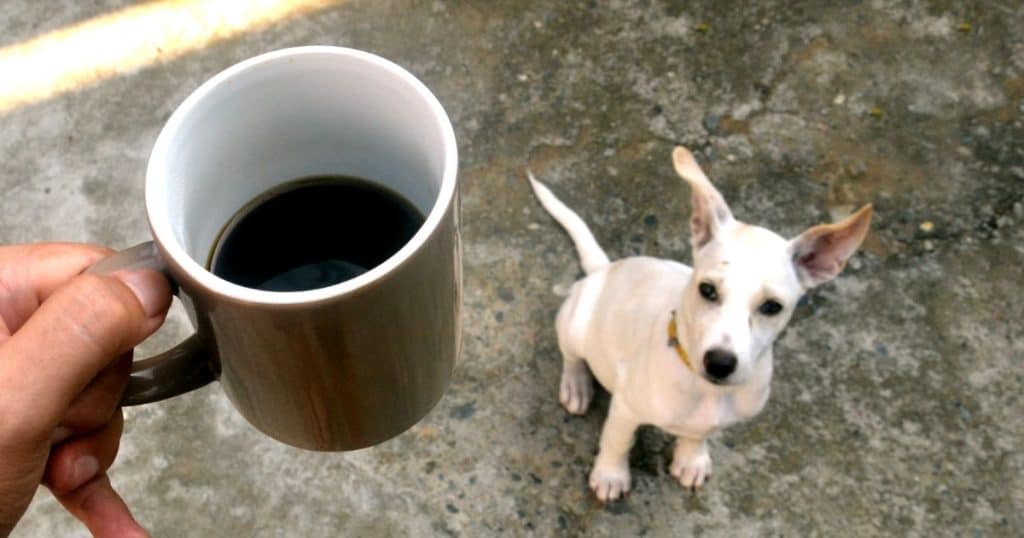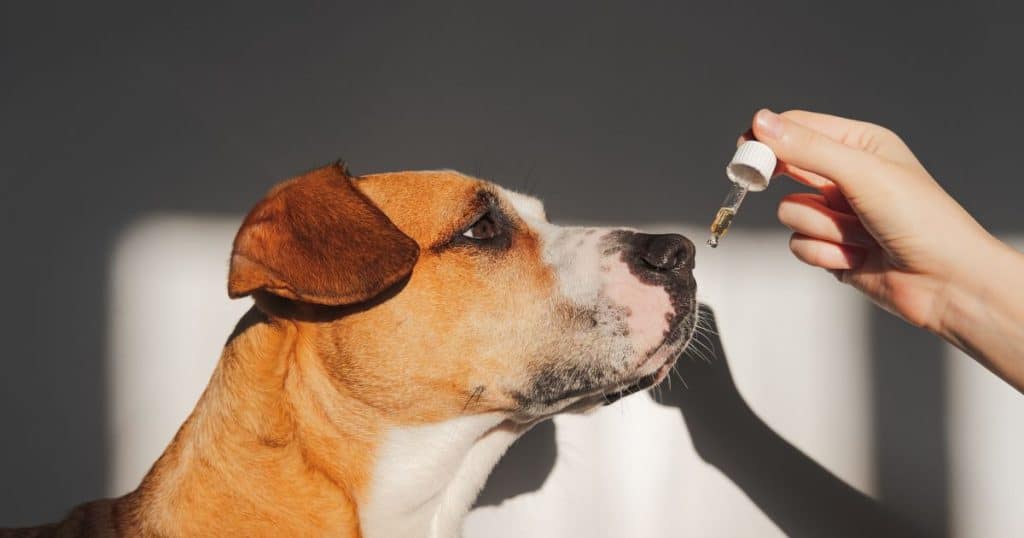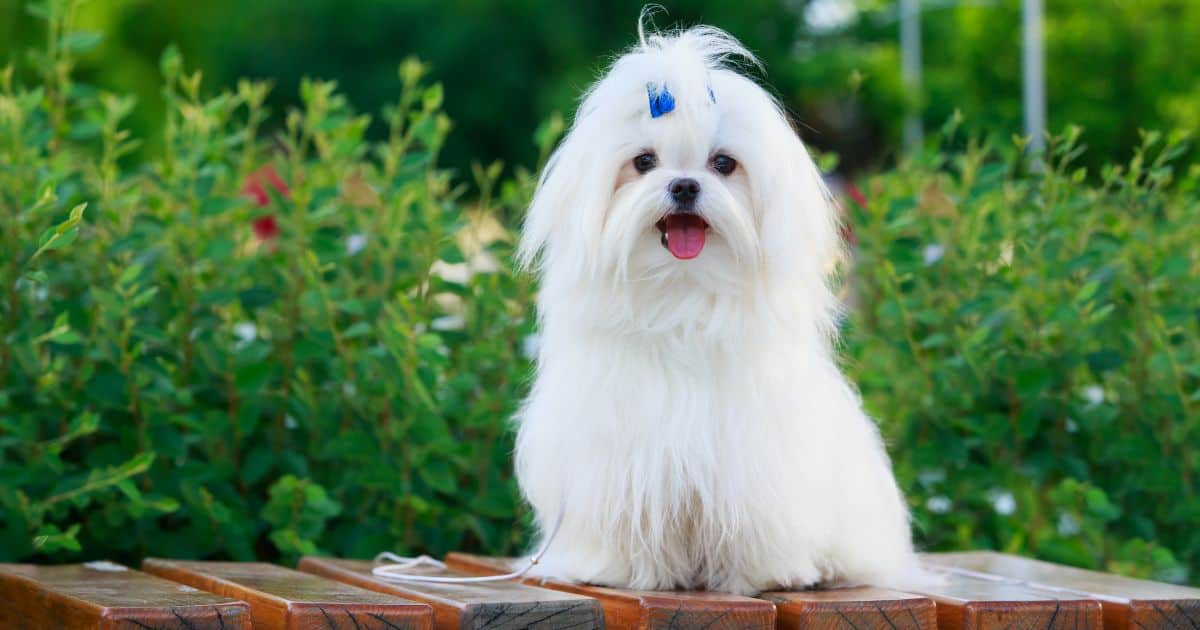Table of Contents
Many pet owners love to share their food and drinks with their furry friends, but not all human foods and beverages are safe for dogs. Coffee, for example, is a popular beverage that many people consume daily, but can dogs drink coffee?
The short answer is no, dogs should not drink coffee. Coffee contains caffeine, which is a stimulant that can be harmful to dogs. Dogs are more sensitive to caffeine than humans, and consuming coffee could lead to caffeine poisoning. The severity of the symptoms can vary depending on the amount of caffeine ingested, but it can cause restlessness, rapid breathing, heart palpitations, muscle tremors, and even death in severe cases.
In this article, we will explore the topic of dogs and coffee in more detail. We will discuss the effects of caffeine on dogs, the symptoms of caffeine poisoning, and what to do if your dog accidentally drinks coffee. We will also look at other human foods and beverages that are toxic to dogs, and provide tips on how to keep your furry friend safe and healthy.
Coffee and Its Effects on Dogs

What is Coffee?
Coffee is a popular beverage that contains caffeine, a natural stimulant that affects the central nervous system. It is commonly consumed by humans and is known to provide a boost of energy and increase alertness. However, caffeine can also have negative effects on the body, including increased heart rate, high blood pressure, and dehydration.
Can Dogs Drink Coffee?
While coffee is safe for humans to drink in moderation, it is not recommended for dogs. According to the American Kennel Club, caffeine is toxic to dogs and can cause serious health problems, including seizures, tremors, and even death.
When a dog ingests caffeine, it can quickly enter their bloodstream and affect their central nervous system. Symptoms of caffeine toxicity in dogs can include restlessness, hyperactivity, vomiting, agitation, seizures, elevated heart rate, and high blood pressure. These symptoms can last anywhere from 12 hours to several days, depending on the amount of caffeine consumed.
It is important for dog owners to be aware of the potential dangers of caffeine and to keep all coffee and other caffeinated products out of reach of their pets. If a dog does accidentally consume coffee or another caffeinated product, it is important to seek veterinary care immediately.
It is also worth noting that some dogs may be more sensitive to caffeine than others, and even small amounts can cause adverse reactions. Therefore, it is best to err on the side of caution and avoid giving dogs any form of caffeine.
Allergies in Dogs

Dogs can suffer from allergies just like humans do. Allergies occur when a dog’s immune system overreacts to a foreign substance, such as pollen, flea saliva, vaccines, and certain foods. Some breeds are more prone to allergies than others, and allergies can develop at any age.
What Causes Allergies in Dogs?
There are several types of allergies that can affect dogs. The most common types are:
- Flea allergy dermatitis: This is an allergic reaction to fleabites. Some dogs are so sensitive that even one bite can cause a reaction.
- Food allergies: Dogs can develop allergies to certain proteins or ingredients in their food, such as beef, dairy, wheat, egg, chicken, lamb/mutton, soy, pork, rabbit, and fish.
- Environmental allergens: Dogs can be allergic to pollen, mold, dust mites, and other environmental allergens.
It’s important to note that allergies are not caused by poor hygiene or a lack of grooming.
Symptoms of Allergies in Dogs
The symptoms of allergies in dogs can vary depending on the type of allergy. Some common symptoms include:
- Itching and scratching
- Red, inflamed skin
- Hives or welts
- Ear infections
- Sneezing and coughing
- Runny nose and eyes
- Vomiting and diarrhea
If you suspect that your dog has allergies, it’s important to take them to the vet for a proper diagnosis. Your vet may recommend allergy testing to determine the specific allergen that is causing your dog’s symptoms. Treatment options may include antihistamines, steroids, immunotherapy, and dietary changes.
Are Dogs Allergic to Coffee?

While coffee may be a staple for many humans, it is not recommended for dogs. In fact, caffeine, the main ingredient in coffee, is toxic to dogs in large amounts. However, the question remains: are dogs allergic to coffee?
Research on Dogs and Coffee Allergies
There is limited research on whether dogs can be allergic to coffee. However, it is known that dogs can have allergies to a variety of substances, including foods, pollen, and flea saliva. It is possible that coffee could be added to that list.
According to the American Kennel Club, if a dog ingests coffee or coffee grounds, it could cause serious toxicity. Symptoms of caffeine poisoning in dogs include restlessness, rapid breathing, heart palpitations, muscle tremors, and seizures. Therefore, it is best to keep coffee and coffee products away from dogs.
Symptoms of Coffee Allergies in Dogs
If a dog is allergic to coffee, they may experience a variety of symptoms. These can include:
- Itchy skin
- Hives
- Rash
- Vomiting
- Diarrhea
- Difficulty breathing
If a dog displays any of these symptoms after ingesting coffee or coffee products, it is important to contact a veterinarian immediately.
Overall, while there is limited research on whether dogs can be allergic to coffee, it is best to err on the side of caution and keep coffee away from dogs altogether. If a dog ingests coffee or displays symptoms of caffeine poisoning or an allergic reaction, it is important to seek veterinary care immediately.
What to Do if Your Dog is Allergic to Coffee

If your dog is allergic to coffee, it is important to take action immediately. Symptoms of an allergic reaction can range from mild to severe and can include vomiting, diarrhea, itching, and difficulty breathing. In severe cases, anaphylaxis can occur, which can be life-threatening.
Treatment Options for Coffee Allergies in Dogs
If you suspect your dog is having an allergic reaction to coffee, it is important to seek veterinary care right away. Your veterinarian may recommend a variety of treatments depending on the severity of your dog’s symptoms. Treatment options may include:
- Antihistamines: These medications can help reduce itching and inflammation caused by an allergic reaction.
- Corticosteroids: These medications can help reduce inflammation and swelling caused by an allergic reaction.
- Epinephrine: In severe cases, your veterinarian may administer epinephrine to help open your dog’s airways and improve breathing.
It is important to follow your veterinarian’s instructions closely and give your dog any medications as directed. Be sure to monitor your dog closely for any changes in symptoms and contact your veterinarian if you have any concerns.
Preventing Coffee Allergies in Dogs
The best way to prevent coffee allergies in dogs is to avoid exposing them to coffee or coffee products. Keep coffee beans, grounds, and brewed coffee out of reach of your dog, and never let your dog drink coffee or other caffeinated beverages. If you do accidentally expose your dog to coffee, watch for any signs of an allergic reaction and seek veterinary care immediately if you notice any symptoms.
If you are concerned that your dog may have a coffee allergy, talk to your veterinarian. Your veterinarian can help you identify any potential allergens and develop a plan to keep your dog safe and healthy.
Before You Go
While dogs can technically drink coffee, it is not recommended. Caffeine is toxic to dogs and can cause a range of symptoms from restlessness and hyperactivity to seizures and even death. Symptoms of caffeine toxicity can appear as quickly as 30 minutes after consumption and can last for several hours.
If you suspect that your dog has consumed coffee or any other caffeinated product, it is important to seek veterinary care immediately. Your veterinarian may induce vomiting or administer activated charcoal to help absorb the caffeine and prevent further absorption into the bloodstream.
It is important to note that dogs can also develop allergies to a variety of substances, including pollen, dust, and certain foods. While there is no evidence to suggest that dogs can be allergic to coffee specifically, it is possible that they may have an allergic reaction to other ingredients commonly found in coffee drinks, such as milk or flavorings.
If you notice that your dog is experiencing symptoms such as itching, hives, or gastrointestinal upset after consuming coffee or other caffeinated products, it is important to consult with your veterinarian to determine the underlying cause and develop an appropriate treatment plan.
Ultimately, while it may be tempting to share your morning cup of coffee with your furry friend, it is best to err on the side of caution and avoid giving them any caffeinated products altogether. Instead, stick to providing your dog with plenty of fresh water and a well-balanced diet to help keep them healthy and happy.




Leave a Reply
You must be logged in to post a comment.